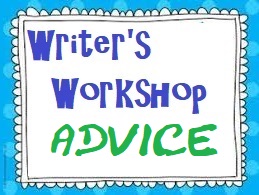Now that we have gone over what a workshop should and shouldn't have in order to help a writer grow, this last discussion point is what you should bring to any workshop. This one can be particularly difficult at first, especially considering how exposed and vulnerable we may (and should) feel going in. It's very easy to insist that the first time we attend a new group, we sit back and try to get used to the flow of the other writers before diving into the main current. This has its merits, but this makes it easy to stay away from actually getting involved. Rather, I recommend the following, to be applied with as much or as little zeal necessary to feel comfortable.
Participate. Sometimes, just offering the slightest engagement with another writer can be an amazing relief. Just for a second, put yourself in the shoes of the other writer who contributes a piece, reads it, then the moderator asks for reviews and... silence. That silence is deadly. Seriously, writers die in that void of response. But if one person opens up with a simple statement such as, "I enjoyed the line about..." or "You described the character well..." then things can open up. Even if it's not a compliment, such as, "I was distracted between the mixed use of past and present tense," it gets things rolling. As long as your comment targets some aspect of the writing, you become engaged with the writer, and by that, with the group.
Be positive, constructive, or inquisitive. While past posts have discussed how other workshops can help and what doesn't help, becoming the embodiment of those features is another story. We will hear pieces that are poorly written, presented by people we do not get along with, or about subjects that set us off. This is where it gets difficult, but it is our job - duty, even - to push forward with something that can lift up our fellow writer. And if we can't bring ourselves to do this (which does happen), we can at least pose a question about some feature that stood out for better or worse. "Did you intend for this to be happy or tragic?" "Is this fiction or based on a true story?" "How do you want readers to respond to this piece?" Hopefully, the inquisitive approach can at least get some discussion flowing, and maybe reveal some aspect that helps you as a writer.
Wear their shoes. The rule to remember for all workshops and life in general is to take a moment and consider what it would be like to be on the other side of what you are about to do. If a political piece is setting you off, think about being a person who is about to be attacked for their beliefs when all they wanted to do was write. Worse yet, think about being another person in the workshop who wants to read a children's story but has to wait while two people start fighting about politics. It's rarely fun and it's never fair, so do you best to consider just how you would feel.
Hopefully, in the next few months more workshops will open up again and writers will start to gather in whatever capacity possible. And as they do, we should remember that they all carry a set of desires common among all writers - to create, to improve, and to be heard. In any workshop we should respect those desires in others, and also be respected in similar fashion. If we can find and apply those traits in a workshop, I guarantee it will be a positive experience.


Amen.
ReplyDelete